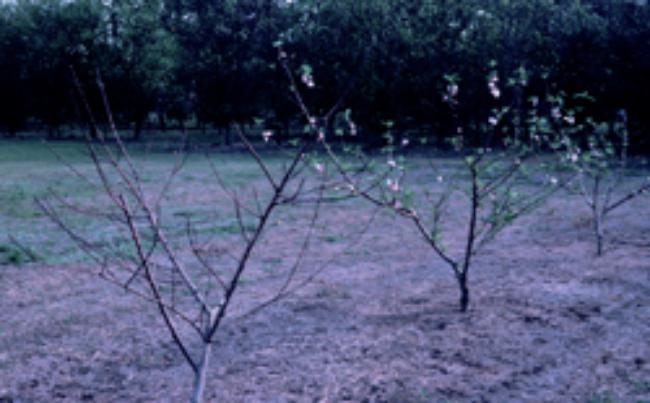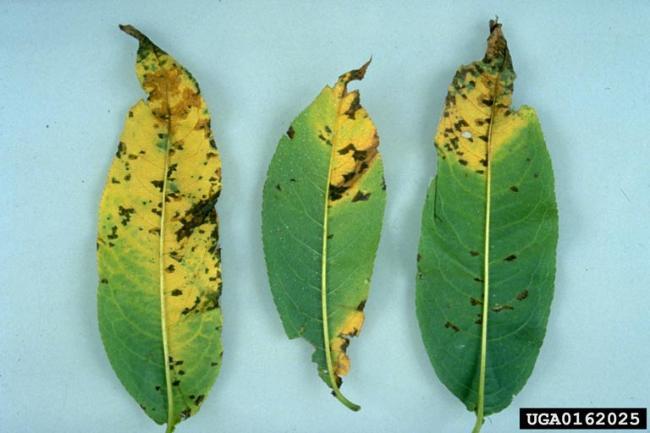Disease Management
Controlling diseases in stone fruit orchards can be a challenge in any environment, but particularly in a subtropical climate. Although most diseases can be controlled, growers must be vigilant and control the disease progression before an epidemic occurs.
Integrated Pest Management (IPM) techniques can be implemented with weekly scouting to aid in responsible chemical applications in both conventional and organic orchards. Listed below are peach diseases common to stone fruit production in Florida. Please use the most current Southeastern Peach, Nectarine and Plum Pest Management and Culture Guide when making decisions on when and what to apply for control of these diseases. Be sure to rotate fungicide chemistries to avoid the development of resistance in your orchard. The consequences can be severe, such as the loss of an entire class of fungicide for a particular disease.
- Fungicide Resistance Action Committee (FRAC) Codes to help in deciding the rotation of chemicals
- Modes of action of fungicides used in peaches - UC IPM
In addition, be sure that you are calibrating your spray equipment properly. While small farms and orchards may be using backpack sprayers, large airblast sprayers are often used in larger orchards.
- Calibrating and Using Backpack Sprayers - Oregon State University
- Calibrating Airblast Sprayers - EDIS1435/AE238
- Managing Pesticide Drift - EDIS PI232
- Choosing a Nozzle Type - Virginia Tech University
Major Stone Fruit Diseases
- Florida Production Practices - EDIS HS 1109/348; University of Georgia
This publication has information about the diseases listed below with specific relativity to Florida. The following publications are listed for additional information about disease cycles and control and are available in the Southeastern Peach Growers' Handbook; University of Georgia.
- Peach Scab
- Bacterial Spot (MSU)
- Rust
- Armillaria Root and Crown Rot (Oak Root Rot) (PSU and LSU)
- Fungal Gummosis
- Peach Tree Short Life (Clemson)
- Phony Peach Disease (Xylella fastidiosa); Plum Leaf Scald - EDIS ENY-683/IN174
- Brown Rot
This disease is usually not a problem in central and southern Florida, because April and May are normally dry months. Fruit is harvested by late May in central and southern Florida, thus infections on the fruit are not as large a concern as in northern regions.


Photo forestryimages.org
Recordkeeping is an essential activity when managing your orchard, and the Florida Department of Agricultural and Consumer Services has provided a suggested Pesticide Recordkeeping Form:
Organic Production
- USDA Organic Resources - NEW!!!
- Organic and Low-Spray Peach Production - National Sustainable Agriculture Information Service
- Low Spray and Organic Plum Production
- Tree Fruits: Organic Production Overview
Diagnostic Services
Plant Disease Clinic (Florida Plant Diagnostic Network) Sample Submission Form (Gainesville)
